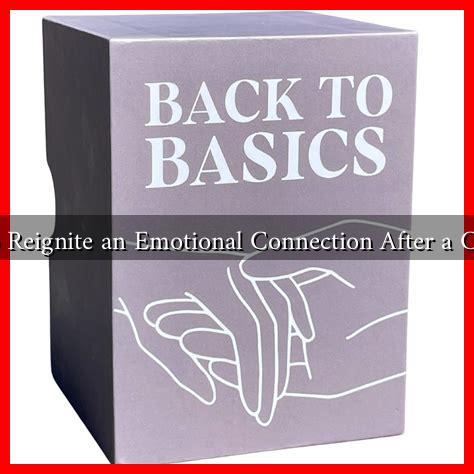-
Table of Contents
How to Reignite an Emotional Connection After a Conflict
Conflicts are an inevitable part of any relationship, whether romantic, familial, or professional. They can create emotional distance, leading to feelings of resentment and disconnection. However, it is possible to reignite that emotional connection after a conflict. This article explores effective strategies to rebuild intimacy and understanding, ensuring that relationships emerge stronger than before.
Understanding the Impact of Conflict
Before diving into strategies for reconnecting, it’s essential to understand how conflict affects emotional bonds. According to a study published in the Journal of Marriage and Family, unresolved conflicts can lead to long-term dissatisfaction in relationships. The emotional fallout can manifest in various ways:
- Increased feelings of isolation
- Heightened anxiety and stress
- Decreased trust and intimacy
Recognizing these impacts is the first step toward healing and reconnecting.
Steps to Reignite Emotional Connection
1. Acknowledge the Conflict
The first step in reigniting an emotional connection is to acknowledge the conflict. Avoiding the issue can lead to further resentment. Instead, approach the situation with openness. Here’s how:
- Initiate a calm conversation about the conflict.
- Use “I” statements to express your feelings without blaming the other person.
- Listen actively to the other person’s perspective.
For example, instead of saying, “You never listen to me,” try, “I feel unheard when I’m interrupted.” This approach fosters a more constructive dialogue.
2. Practice Empathy
Empathy is crucial in rebuilding emotional connections. It involves understanding and validating the other person’s feelings. Here are some ways to practice empathy:
- Put yourself in the other person’s shoes.
- Reflect back what you hear to show understanding.
- Avoid interrupting or dismissing their feelings.
Research from the University of California, Berkeley, indicates that empathetic communication can significantly reduce conflict and enhance emotional bonds.
3. Revisit Positive Memories
Reconnecting emotionally can also involve revisiting positive memories shared with the other person. This can help remind both parties of the bond they share. Consider the following:
- Look through old photos together.
- Share stories of happy moments from your past.
- Engage in activities that you both enjoy.
These actions can help shift the focus from conflict to connection, reinforcing the positive aspects of your relationship.
4. Establish New Boundaries
After a conflict, it’s essential to establish new boundaries to prevent similar issues from arising in the future. This can include:
- Discussing what behaviors are acceptable and what are not.
- Setting aside regular time for open communication.
- Agreeing on conflict resolution strategies.
Establishing clear boundaries can help both parties feel safe and respected, fostering a healthier emotional connection.
5. Seek Professional Help if Needed
Sometimes, conflicts can be deeply rooted and challenging to resolve alone. In such cases, seeking professional help can be beneficial. Couples therapy or conflict resolution workshops can provide valuable tools and insights. According to the American Psychological Association, therapy can improve relationship satisfaction by up to 70%.
Conclusion
Reigniting an emotional connection after a conflict is not only possible but can also lead to a stronger, more resilient relationship. By acknowledging the conflict, practicing empathy, revisiting positive memories, establishing new boundaries, and seeking professional help when necessary, individuals can rebuild intimacy and trust. Remember, every conflict presents an opportunity for growth and deeper understanding. Embrace the journey of reconnecting, and you may find that your relationship emerges even stronger than before.
For more insights on relationship dynamics, consider visiting American Psychological Association.

